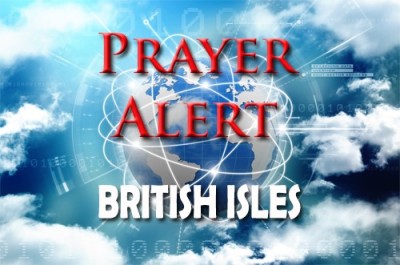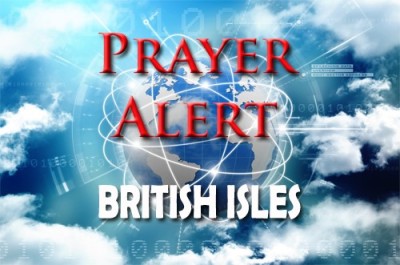The Government is preparing a major expansion of facial recognition technology across the UK, giving police access to passport and driving-licence photos to speed up the identification of offenders. The Met Police, which has already made 1,300 arrests and tracked more than 100 sex offenders using the technology over two years, says live facial recognition is a key tool for public safety. The Home Office has launched a ten-week consultation to shape new legislation after concerns about 'Big Brother Britain' and the erosion of civil liberties. Critics argue that safeguards remain inadequate, noting previous findings by the Equality and Human Rights Commission that the Met’s policies were 'unlawful'. Civil liberties groups warn of potential misuse, disproportionate surveillance, and a chilling effect at protests. Supporters insist that the technology is becoming more accurate, with strict oversight needed rather than abandonment. Police chiefs say it will help find dangerous offenders and missing people more quickly. The consultation will determine what safeguards are necessary and whether expanded use is proportionate to the harms being targeted.
The classic worship song Shine, Jesus, Shine has been newly reimagined for the UK-wide ‘Shine Your Light’ Christmas campaign, which seeks to unite thousands of believers in a shared moment of worship and national prayer. First written by Graham Kendrick in 1987, the song is one of the most recognisable modern hymns in Britain. The initiative was sparked by Christian teacher and musician Nicole Hobday, who first dreamed as a teenager of churches singing the song simultaneously. The vision resurfaced after witnessing Kendrick lead believers to sing the song as a prayer over the nation. Feeling a sense of urgency following last August’s unrest, Hobday approached Kendrick, who encouraged her to take the idea forward. The new arrangement features children’s voices, multilingual lines in Punjabi and Mandarin, a rap element, prayers, and a choral arrangement by Ken Burton. Hobday described the recording session at COM Church as deeply moving. Running from 12 to 14 December, the campaign involves around 2,000 churches and aims to mobilise 200,000 Christians to share the Gospel with two million people.
The current round of diplomacy over the war in Ukraine suggests that Vladimir Putin remains firmly unwilling to accept any current peace proposal. After lengthy talks with Steve Witkoff and Jared Kushner, Kremlin aide Yuri Ushakov admitted that no compromise version has yet been found – not surprising given Putin’s increasingly uncompromising tone. He has denounced Ukraine’s leadership as a ‘thieving junta’, accused European leaders of obstructing peace efforts, and insisted Russia holds the battlefield initiative, even though many of his supposed gains are disputed by Ukraine and international observers. Russian state media has showcased Putin in military fatigues studying front-line maps, projecting confidence and momentum nearly four years into the invasion. Putin appears determined to convince both domestic and foreign audiences that he cannot be pressured into changing course. Yet sustaining war requires resources: oil and gas revenues are slipping, economic imbalances are widening, and the budget deficit is growing. The critical unknown is whether mounting economic strain will eventually alter the Kremlin’s wartime calculations.
Across the UK and Europe, cars are steadily growing longer, wider, and heavier - a trend critics have nicknamed ‘carspreading’. SUVs in particular have surged in popularity, with their market share rising from 13% in 2011 to nearly 60% by 2025. Buyers praise them for visibility, practicality, comfort, and a sense of safety, and carmakers favour them for higher profit margins. But cities like Paris and Cardiff are pushing back, arguing that larger vehicles worsen pollution, increase road wear, and heighten risks in collisions. In Paris, after parking fees for heavy vehicles were tripled, the authorities have reported a two-thirds reduction in their numbers. Cardiff plans similar measures, gradually lowering weight thresholds for higher permit costs. Supporters say cities are too constrained to accommodate ever-bigger cars, while critics argue families rely on them for space, mobility, and accessibility. With many European roads narrower than modern vehicles, the debate highlights a growing tension between personal convenience, environmental responsibility, and urban safety.
Indonesia is facing a mounting humanitarian emergency after catastrophic floods killed at least 631 people and left nearly 500 missing, with rescue teams still struggling to reach isolated communities. Triggered by a rare cyclone over the Malacca Strait, the disaster has affected some 1.5 million people across Aceh, North Sumatra, and West Sumatra, cutting off entire districts and leaving about one million people displaced. Survivors describe torrents of water like a ‘tsunami’, while images show bridges swept away, roads buried in mud, and debris piled high. Many families have gone days without food as red tape, damaged infrastructure, and ongoing storms hinder aid deliveries. Grieving relatives wait anxiously near excavation sites, hoping missing loved ones will be found. Anger is growing over what critics say was poor preparedness and environmental mismanagement which worsened the devastation. The flooding comes as part of a broader regional crisis, with over 1,200 deaths across south and southeast Asia caused by intense monsoon rains amplified by rare cyclones and a warming climate.
The authorities are under intense scrutiny for their handling of Cyclone Ditwah, which has affected more than 1.46 million people across all 25 districts and caused the nation’s worst flooding in two decades. Over 410 people are confirmed dead, hundreds are missing, and tens of thousands are sheltering in overcrowded government centers. Critics argue that officials ignored early warning signs and failed to coordinate a timely, unified emergency response, leaving rescue teams overwhelmed and communication systems fragmented. Severe damage to roads, power networks, and telecommunications has isolated northern districts, complicating relief efforts as water levels continue to rise. Opposition leaders are pursuing legal action, accusing the government of negligence that cost many lives. Further concerns have emerged over inadequate disaster communication in Tamil, which left many without critical information. Despite international aid pledges and a state of emergency, the crisis has exposed major weaknesses in Sri Lanka’s preparedness and response structures, prompting urgent calls for reform. However, there has been an impressive show of ‘volunteerism’ from local communities: see
The impending ban on social media access for under-16s in Australia has sparked confusion, concern, and debate among students, parents, experts, and global observers. From 10 December, platforms such as Instagram, TikTok, Snapchat, YouTube, and others must demonstrate effective age verification or face major fines. Schools are scrambling to prepare teens for losing access to their accounts, photos, and online communities. Tech companies are rolling out facial age-estimation tools and other verification methods, though questions remain about accuracy and accessibility for older teens. Many young content creators fear losing hard-won followings, while others, like students at phone-free leadership programmes, describe unexpected freedom and richer real-life connections. Advocates warn that some teens rely on social media for support networks and could be pushed toward more dangerous spaces. The policy, inspired partly by concerns over youth mental health, has drawn both strong political backing and legal challenges claiming that it restricts young people’s rights. Other nations are watching closely as similar proposals emerge worldwide.
The long-standing exemption of ultra-Orthodox (Haredi) men from military service has potentially become a huge crisis for Benjamin Netanyahu. With the Gaza war placing immense strain on reservists, public opinion has shifted decisively toward ending the exemption, which was first granted in 1948. Although the high court ruled it illegal twenty years ago, political gridlock has kept it in place, so that only 1,200 of 24,000 drafted Haredi men reported for duty last year. Haredis have more than doubled their share of Israel's population over the past seven decades, and now account for 14%. What began as an exemption for several hundred religious students has now become a cohort of some 60,000 men left out of the draft. Street protests, clashes with police, and rapid-response networks reflect growing Haredi communal resistance. Supporters of conscription - religious and secular alike - argue that fairness and national survival demand shared burden. Yet ultra-Orthodox leaders insist that studying the Torah protects Israel spiritually and must remain untouched. Netanyahu’s fragile coalition depends on Haredi parties, making meaningful reform politically perilous. The Haredis are now locked in a debate over what it means to be Jewish and Israeli, and whether that means fighting for Israel or fighting for their way of life against the modern demands of war.







